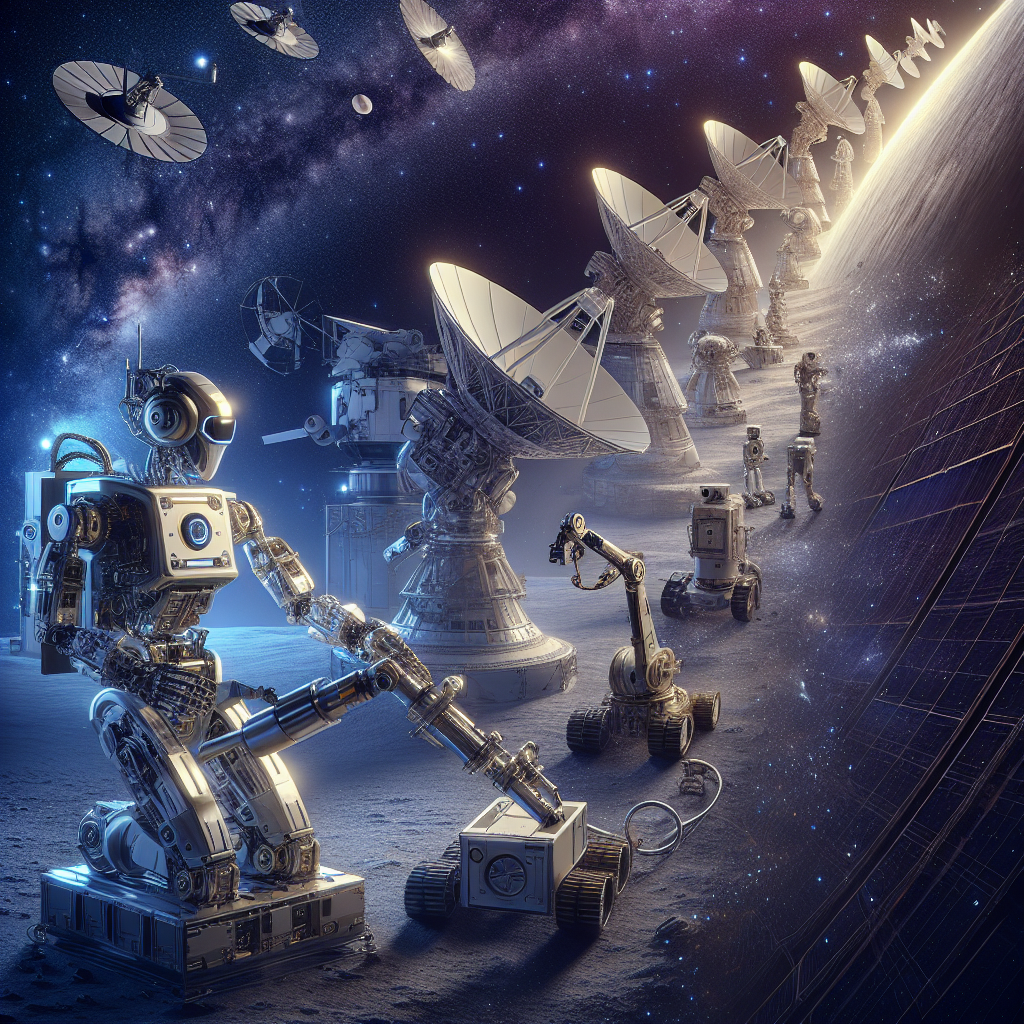Exploring the Final Frontier: How Robotics Revolutionize Space Exploration
Space exploration has always been a fascination for humanity, with the infinite expanse of the universe holding untold mysteries waiting to be uncovered. In recent years, advancements in robotics technology have revolutionized the way we explore space, allowing us to venture further and deeper into the cosmos than ever before. From rovers on the surface of Mars to autonomous spacecraft exploring distant planets, robots have become essential tools in our quest to understand the universe.
The use of robots in space exploration has many benefits, including the ability to gather data from environments that are too dangerous or inhospitable for humans to explore. Robots can also be sent on long-duration missions without the need for food, water, or oxygen, making them ideal for exploring distant planets and moons. In addition, robots can be equipped with a wide range of scientific instruments and sensors, allowing them to collect valuable data that can help us better understand the universe.
One of the most well-known examples of robotics in space exploration is the Mars rover Curiosity. Launched by NASA in 2011, Curiosity has been exploring the surface of Mars for over a decade, sending back valuable data and images that have significantly increased our understanding of the Red Planet. Equipped with a suite of scientific instruments, including cameras, spectrometers, and a drill, Curiosity has been able to analyze the Martian soil and rocks, providing valuable insights into the planet’s geology and potential for life.
Another groundbreaking example of robotics in space exploration is the European Space Agency’s Rosetta mission, which successfully landed a robotic probe on a comet for the first time in history. The Philae lander, carried by the Rosetta spacecraft, touched down on comet 67P/Churyumov-Gerasimenko in 2014, allowing scientists to study the comet up close and gather valuable data about its composition and structure. This milestone achievement demonstrated the incredible capabilities of robotic spacecraft and opened up new possibilities for exploring the furthest reaches of our solar system.
In addition to planetary exploration, robots are also being used in space to assist astronauts on the International Space Station (ISS) and in future crewed missions to the Moon and Mars. Robots such as Robonaut, which is designed to assist astronauts with tasks such as maintenance and repairs, are being developed to work alongside humans in space, increasing efficiency and safety during space missions. As we look towards the future of space exploration, robots will play an increasingly important role in helping us explore new worlds and push the boundaries of human exploration.
FAQs:
Q: How are robots used in space exploration?
A: Robots are used in space exploration for a wide range of tasks, including planetary exploration, scientific research, and assisting astronauts on the ISS. They can be equipped with a variety of instruments and sensors to collect data, perform experiments, and carry out tasks that are too dangerous or difficult for humans to do.
Q: What are the benefits of using robots in space exploration?
A: The use of robots in space exploration has many benefits, including the ability to gather data from environments that are too dangerous or inhospitable for humans to explore. Robots can also be sent on long-duration missions without the need for food, water, or oxygen, making them ideal for exploring distant planets and moons. In addition, robots can be equipped with a wide range of scientific instruments and sensors, allowing them to collect valuable data that can help us better understand the universe.
Q: What are some examples of robots used in space exploration?
A: Some examples of robots used in space exploration include the Mars rovers, such as Curiosity and Perseverance, which have been exploring the surface of Mars for over a decade. The European Space Agency’s Rosetta mission also successfully landed a robotic probe on a comet for the first time in history, demonstrating the incredible capabilities of robotic spacecraft.
Q: How will robots be used in future space exploration missions?
A: In the future, robots will play an increasingly important role in space exploration, assisting astronauts on crewed missions to the Moon and Mars, exploring new worlds in our solar system, and pushing the boundaries of human exploration. They will continue to be equipped with advanced instruments and sensors to collect valuable data and perform tasks that are essential for our understanding of the universe.
In conclusion, the use of robots in space exploration has revolutionized the way we explore the universe, allowing us to venture further and deeper into the cosmos than ever before. From planetary rovers to robotic spacecraft, robots have become essential tools in our quest to understand the mysteries of the final frontier. As we look towards the future of space exploration, robots will continue to play a crucial role in helping us unlock the secrets of the universe and push the boundaries of human exploration.
